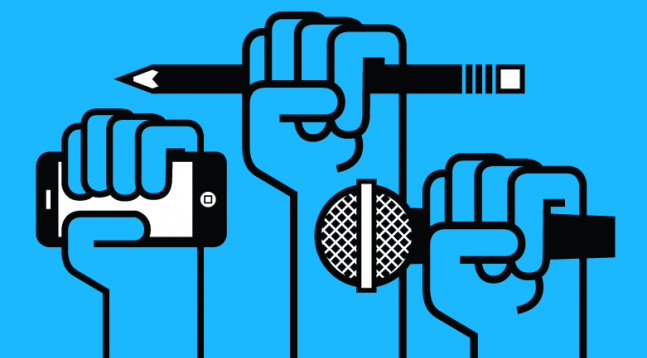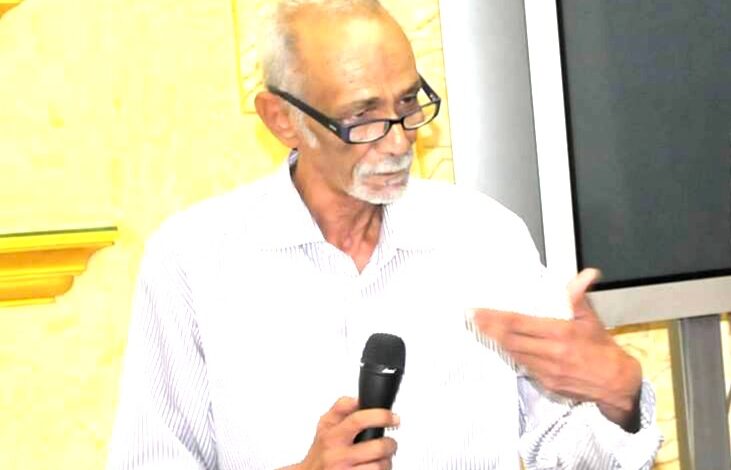
Press Freedom in Sudan

Muawad Mustafa Rashid
Introduction:
Hailed as the fourth pillar of democracy, journalists have time and again risked their lives and reputation to reveal the truth behind an incident, event or scandal. In a bid to appreciate their hard work, every year, May 3 is observed as World Press Freedom Day. The special day celebrates the spirit of journalism and recognizes the dedication of journalists. It is extremely significant, as the United Nations considers it an opportunity to celebrate the fundamental principles of press freedom, assess the state of press freedom across the globe, defend the attacks on media independence, and pay tribute to the journalists who sacrificed their lives in the line of duty.
Every year, a specific theme is chosen for World Press Day, and this year’s theme is “Journalism under digital siege”. This year’s theme not only highlights the ways that endanger journalism but also the consequences of all this on public trust in digital communications. Mostly, it focuses on the risks faced by journalists by surveillance and digitally-mediated attacks. The origin of World Press Day dates back to 1991, when an African Journalist present at a UNESCO conference in Windhoek, which was based on ‘Promoting an Independent and Pluralistic African Media’, opened up about an idea to encourage press free domain in different parts of the world.
UNESCO adopted the Windhoek declaration on May 3 in 1993, which aimed toward the ‘development of a free, independent and pluralistic press. The day also highlights the importance of freedom of journalists in a few countries, like China, North Korea, Vietnam, Laos, Eritrea, Djibouti, Turkmenistan, Saudi Arabia, Syria, Iran, and Cuba, that have severely limited press freedom. Last year’s theme was, “Information as a Public Good” which focused on the importance of cherishing the information as a public good and explored the ways to strengthen the fourth pillar of democracy.
Freedom of expression is a universal human right. It is not the prerogative of the politician. Nor is it the privilege of the journalist. In their day-to-day work, journalists are simply exercising every citizen’s right to free speech.
A free press is fundamental to a democratic society. It seeks out and circulates news, information, ideas, comment, and opinion and holds those in authority to account. The press provides the platform for a multiplicity of voices to be heard. At the national, regional, and local levels, it is the public’s watchdog, activist, and guardian as well as educator, entertainer, and contemporary chronicler.
Section 40 of the Crime and Courts Act 2013 is designed to punish newspapers in libel and privacy cases – even if they win – if they have refused to sign up to state-backed regulation, a mixture of medieval prerogative and political control. No significant publications have chosen to submit to this regime. Instead, the majority of the industry – nationals, regionals, and magazines – has signed up to a tough new system of self-regulation under the Independent Press Standards Organization which started work in September 2014. The Government is committed to the repeal of Section 40 at the first appropriate opportunity, without commencing it first.
Press Freedom in Sudan:
In Sudan, nothing was OK during the former autocratic regimes, as the space for freedom of expression was very limited and there were tensions between the journalists and the governments.
Freedom of expression is not just a principle of global justice, but a necessity for human dignity and safety, but during the autocratic regime that ruled Sudan since its independence there was no freedom of expression, so journalists were subject to torture besides the censorship and suspension of some newspapers if it publishes any criticism to the regime or reveals corruption cases.
But after the glorious December revolution, the press freedom expanded and the people were eager to practice their natural practice of expression.
Everybody now is practicing his right without preconditions to the extent that even the supporters of the ousted regime are criticizing the transitional government forgetting that they were the main cause of the damage to the country and its people.
The main challenge which is facing the democratic transformation is represented by granting more freedoms towards establishing the rule of law, considering that the sufferings during the ousted regime years were represented by suppression of protests and restrictions on media outlets.
Freedoms Battle:
The freedom of expression is considered the most important component of the democratic transformation and the political reform in all communities.
The Sudanese media in particular is facing internal challenges after the formation of the transitional government as it is supposed to pave the way for the smooth transition towards establishing a democratic regime.
Despite the considerable improvement in the issue of freedom of expression in Sudan during the year 2020, the country is still classified as lacking freedom of expression and that is because of the mentality of the concerned institutions which intervene in the freedom of expression and are still linked to the old practices which restrict the press freedom and expression.
The freedom of expression requires the existence of a permanent constitution accompanied by popular awareness, and the media platforms should meet all the conditions of the comprehensive professional qualifications.
The Guarantees of Freedom of Expression:
The start should be by applying the freedom of expression and access to the information besides removing all the obstacles that hinder the media work.
It is impossible to make the democratic transformation success in Sudan within the absence of actual freedom that enables the media outlets to practice their role in knowledge and shaping a public opinion besides assisting the political influencers, economists, and the social actors to play their role afar from the old practices which are built on crude propaganda and consolidating the negative mental image of media professionals.
The reformatting of the previous 30-years’ damage requires an actual understanding of the meaning of freedom of expression by the governmental institutions as well as the media people themselves.
In short, it is difficult to achieve the aspired change without comprehensive political and economic change through the formation of mechanisms, rebuilding the legal system, building the justice institutions besides ratification of the international human rights charters, and setting a code of ethics amid the media people to push forward the democratic transformation and defending the Sudanese identity.



